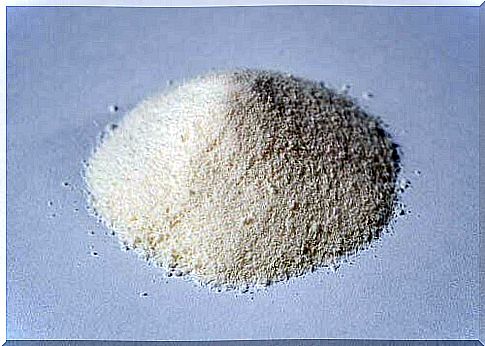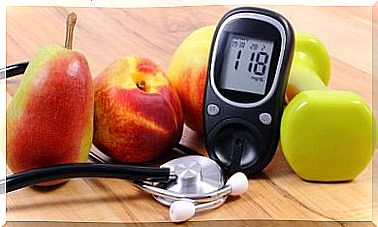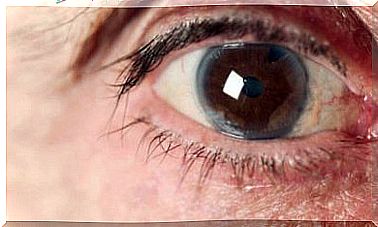Collagen: What Are Its Benefits And Contraindications?
Did you know that collagen is essential for skin, muscles, ligaments, and cartilage? Collagen deficiency is linked to several health conditions, such as joint problems, osteoporosis, the appearance of wrinkles, and even some dental problems.
Discover in this article why it is essential to have good levels of collagen. In addition, the best ways to take it as a supplement and with food will be detailed.
What is collagen?
Collagen is the most important protein in our body, since it represents more than a quarter of our protein. It is the largest component of our bones and skin, but it is also in the joints, muscles, tendons, dentin, cornea, hair, etc. That is, it is distributed throughout our body.
It is a fundamental element for the proper functioning of our body; It is present in the form of flexible and very resistant fibers – collagen fibers – that compact, stretch and vary in diameter according to the tissue of which they are part.
Its main collagen function is to provide resistance and flexibility to the body, which allows us to move and stand, as well as to look good.
What if we lack collagen?

By knowing the function of collagen in our body, we can deduce the importance of maintaining good levels of this protein. This is necessary to have a good quality of life and to prevent health problems.
Our body produces collagen naturally. However, after the age of 30 or 40, the ability to generate it is gradually lost. This will cause the following symptoms related to aging, both health and aesthetic:
- Aging of the skin, loss of smoothness and firmness and the appearance of wrinkles.
- Difficulties in the mobility of the joints, which can also lead to inflammation and pain.
- Loss of bone density.
- Appearance of varicose veins.
- Hair loss.
- Dental problems.
Collagen in men and women
Although both men and women suffer the progressive loss of the ability to generate collagen, they are the ones who tend to suffer it earlier and more suddenly due to hormonal changes. For this reason, it is more common for women to suffer earlier bone density and joint problems.
However, there is an exception with people who do a lot of sports. They are also prone to joint problems earlier due to the wear of collagen fibers that causes continued movement.
Osteoarthritis

It is one of the most common diseases due to cartilage wear – and collagen – which, in this case, is what covers the bones of the joint as if it were a pad. This degeneration of the collagen in the cartilage makes these bones unprotected and rubbing continuously, causing inflammation and pain.
There are factors that influence this loss of cartilage, such as excessive exercise, sedentary lifestyle or age. However, if we add collagen to our diet we can delay this problem, which can cause a lot of pain.
The rheumatologist is the specialist who will be in charge of diagnosing and developing a treatment in case we suffer from osteoarthritis. It is a disease that is a common cause of sick leave due to work disability and that greatly worsens the quality of life of the people who suffer from it.
Osteoporosis

Although we usually associate osteoporosis with a lack of calcium, collagen also plays a fundamental role in bone density. The reason is that it is part of the structure in which this mineral is fixed. When collagen breaks down, the bone becomes increasingly fragile, which very easily exposes it to any type of fracture or injury.
This disease usually does not present symptoms until we suffer a fracture or undergo the pertinent examination for any reason. This confirms the need to prevent it, including collagen in our diet or as a supplement after thirty.
Menopause is a key moment in this disease. However, there are other factors that can also be decisive, such as diet, especially when it is poor in nutrients, lack of exercise and the consumption of some medications.
Collagen as a supplement

The way to slow down the degradation of this component and avoid the health problems that it entails is to take a supplement of this protein as soon as we begin to feel the symptoms. It is even possible to do it just to prevent, from the age of 30.
Generally, 10 grams of assimilable collagen per day is prescribed. The best known is hydrolyzed collagen, a soluble nutrient that we can mix with food to ingest.
Natural collagen supplements, which we can buy in herbalists, dietetics and pharmacies, can be made from two different sources:
- Of animal origin: from chicken, cow or pig.
- Of marine origin: derived from fish and algae. Shark cartilage is well known.
In many cases, the collagen supplement is usually accompanied by other nutrients to improve its assimilation.
Collagen in food

Another option is to incorporate collagen into our diet naturally. To do this, we must recover recipes based on animal skins and bones to make broths.
Whenever possible, it is advisable to choose ingredients of organic origin to avoid hormones and other substances that can be harmful to health if we abuse animal protein.
To get them, we can go to a trusted butcher shop and ask for bones from animals that have been fed naturally. In the case of fish, we will choose wild-sourced fish.
These broths require long cooking times to be able to extract the collagen from the food, but they have the advantage that they allow us to make an economical recipe in which the ingredient is used to the maximum.
On the other hand, there is the alternative of consuming gelatins rich in this component. However, we should avoid those that contain white sugar and artificial flavorings, or we should make them ourselves with plates of neutral gelatin.
It is important to highlight the foods that, directly or indirectly, stimulate and improve collagen production:
- Foods rich in vitamin C: Green leafy vegetables, citrus fruits (and their peelings, if they are organic), red pepper, red fruits, etc.
- Green tea: This miraculous medicinal drink has the ability to stimulate the production of collagen and elastin.
- Foods rich in omega 3 fatty acids: Blue fish, walnuts, egg yolk, olive and flax oil, avocado, etc.
- Sulfur-rich foods: Onions, olives, celery, cucumber.
Collagen contraindications
The consumption of hydrolyzed collagen does not have important contraindications, since it is a natural product that the body assimilates easily. This is the case as long as it is a collagen of guaranteed quality and the doses indicated by the manufacturer or the doctor are taken.
However, the following people should avoid its consumption:
- If you have an allergy to animal protein. It is important to always find out the source of the collagen.
- If you suffer from hereditary phenylketonuria or intolerance to phenylalanine.
Lastly, for those who follow specific diets, they should bear in mind that collagen is a very rich source of protein. For all these reasons, its intake is a requirement that we should not ignore, especially in adulthood.









